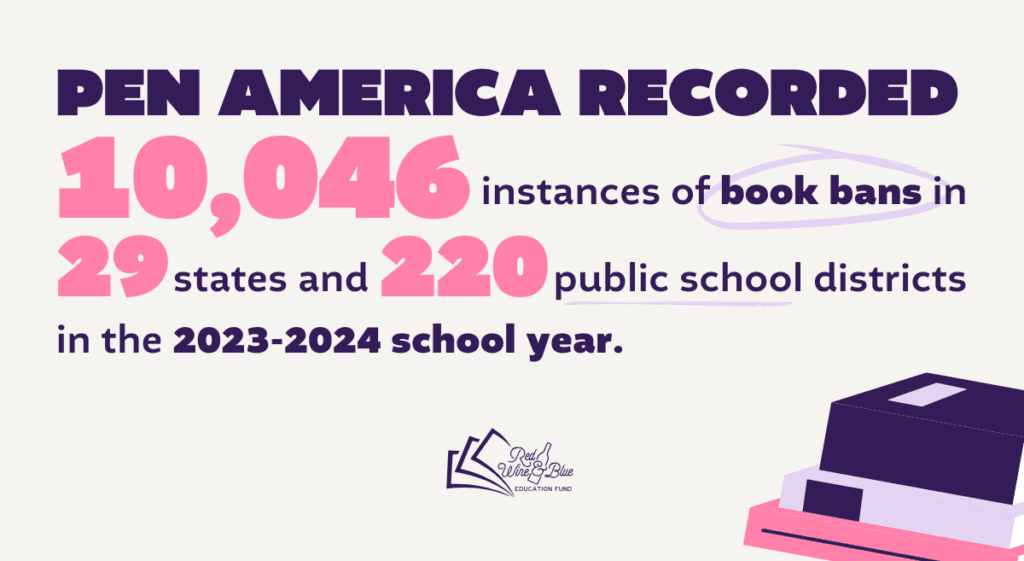In a few weeks, we’ll celebrate Right to Read Day as part of National Library Week. National Library Week celebrates how reading and libraries enrich our lives and communities. It started in the 1950s over concerns that Americans were reading less and spending more time listening to radios and watching TV.
Now, in addition to those distractions, we also have the internet and social media keeping us from reading books. In 2024, 37% of American adults did not read or listen to a single book or audio book. Do you know what else is keeping people from reading? A rise in book bans!
This attack on our freedom to read has been happening for years. We’ve written about it before (here and here), but let’s take a look at where things stand with book banning now under the Trump administration, and what we can do about it.
PEN America recorded 10,046 instances of book bans in 29 states and 220 public school districts in the 2023-2024 school year. This is the third year in a row where book bans have increased in America. And that’s just the documented bans where access to books has been limited or completely removed. PEN America is also seeing a rise in “soft censorship” where schools, libraries and teachers are removing books on their own, simply out of fear.
The Trump administration is adding to this fear. President Trump has threatened to block federal funding to schools that don’t follow his executive orders to end diversity, equity, and inclusion initiatives, and to deny the existence of trans people. We already know that books about race, racism, and LGBTQ+ characters or characters of color are disproportionately targeted by book bans. Trump’s threats and orders could limit the availability of diverse and representative books in public school classrooms and libraries even more.
Just weeks after Trump was inaugurated, the Department of Defense announced that it was removing books from the 160 schools run by the Pentagon for 67,000 children of U.S. military members stationed worldwide. That list included a children’s book written by Oscar-winning actor Julianne Moore about a girl learning to accept her freckles, elementary school materials for Black History Month, and even Vice President JD Vance’s memoir!
This followed an earlier announcement that Trump’s Department of Education was rescinding all previous guidance for schools on how to respond to book bans, removing its anti-book ban coordinator position, and dismissing 17 active or pending civil rights investigations on book bans. These actions ignore the very real threat and impact of book bans on our kids, and it probably won’t stop here.
This threat is an organized effort by extremists to control what we read and learn. As the American Library Association said in response to Trump’s Department of Education actions, book bans are real, they are cruel, and they are unconstitutional. The good news is that we can still fight this by speaking out against book bans, by showing up to support our students, teachers, and librarians, and by celebrating reading. In the coming weeks, we’ll show you how.


